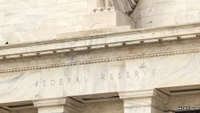Free Airdrop Season 7 is LIVE! Answer fun questions or do simple tasks to earn rewards from the $30K BitDegree prize pool. Participate Now ! 🔥
Tel Aviv Stock Exchange Takes a Step Towards Offering Crypto Trading Services
Tel Aviv Stock Exchange believes "the alignment of local regulation with international regulation" will attract more crypto investors to Israel.
On Monday, February 27th, Tel Aviv Stock Exchange (TASE) published a draft proposal aiming to expand "the authorized activities of Non-Banking Members (NBMs) to include trading" in crypto.
According to the press release shared on February 27th, TASE is seeking public comments on the draft for approval. After receiving comments from the public, TASE will edit the draft and will send it to TASE board of directors for approval.

Did you know?
Subscribe - We publish new crypto explainer videos every week!
How to Track Cryptocurrencies? (3 BEST Tracking Platforms Revealed)

If approved, the proposal would enable non-banking members to offer crypto trading and custody services. Under current rules, non-banking members of TASE can provide investment services, consultancy services, brokerage services, and cashing checks.
In its press release, Tel Aviv Stock Exchange stated:
This is another step in the advancement and development of the Israeli capital market that aims to encourage innovation and competition, while mitigating the risks and protecting the customers.
The funds deposited for crypto investment would be placed in an "omnibus account," which will act as an intermediary for crypto trading. Customers can withdraw earnings from crypto trading. However, this process can be a bit more difficult than usual. TASA plans to apply particular measures that would mitigate risks and enhance consumer protection.
TASE highlighted that the 2022 crypto market turmoil forced countries to strengthen crypto regulations and apply new measures to protect investors.
The stock exchange sees its proposal as a means to meet growing demand while enhancing consumer protection. Its announcement stated that:
TASE believes that the alignment of local regulation with international regulation will attract more foreign investments and foreign investors into the Israeli market, while at the same time will enable the Israeli public to invest locally, through supervised institutions.
The Israeli Securities Authority (ISA) has proposed new rules for the crypto sector, which would classify them all as securities.























